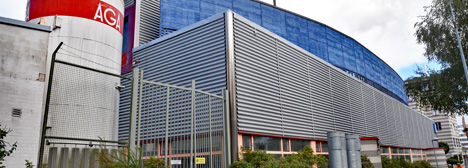At the same time that the EU has identified semiconductors as strategically important and has invested hundreds of billions in the region, KTH may be heading in the opposite direction. On November 22, the future of the University’s successful semiconductor operations in Kista and thus also the Electrum Laboratory will be decided.
The question is simple, is it possible to save money by moving operations in Kista to the KTH campus in Valhallavägen without suffering research and education? The investigation that became public today certainly raises a number of question marks, but it still comes to the conclusion that it would likely be beneficial to separate education and research from clean room operations at the Electrum laboratory.
Relocating the clean room, classified as a national resource, is out of the question and would cost between 500 million and 1 billion kroner. The 1,300 square meter clean room was opened in 1987 and is shared with the Rise Research Institute as well as a number of companies that have developed over the years. According to the researcher, researchers make up half of the users. If you instead count the time they use the lab, they make up 20 percent.
The laboratory is modernized annually for an amount of 10 to 20 million kroner, and apart from some basic equipment, purchases are coordinated with the clean rooms in Lund, Uppsala and in Chalmers so that the funds are used as efficiently as possible.
These laboratories represent the cornerstone of Vinova’s ambition to create a Swedish semiconductor institute within what the EU calls Chips JU, part of the EU’s multi-billion-dollar investment in upgrading semiconductor efficiency and bringing manufacturing back to Europe.
Before proposing the next research, the rectors of KTH, Chalmers and Lund universities called on the government to invest $1 billion over ten years in the region.
If you look at KTH’s operations in Kista in terms of turnover, it is relatively large, and financially it is quite comparable to the research being done at some of the smaller universities in Sweden, the researcher wrote. At Kista, there are 800 so-called full-year study equivalents (1,500 to 2,000 active students), 185 research students who have completed their theses in the last 10 years and 26 work-related industrial doctoral students.
The rental budget for the building in Kista is SEK 49 million this year and SEK 52 million next year. In comparison, the cost of the Valhallavagen campus is estimated at SEK 801 million this year. The investigator did not think about what this step would entail.
Room rent in Kista is cheaper per student than at the Valhallavägen campus. Additionally, there are not enough vacant buildings in Valhallavägen for the transfer to go smoothly. Only two of Kista’s three research groups can sit with the rest of the staff at EECS, the College of Electrical Engineering and Computer Science, of which the Kista branch is a part, the investigator writes. In addition to electrical engineering, computer science, intelligent systems, and human-centered technology are included in EECS. It is unclear where the third and largest group will sit.
In addition, the researcher points out that working hours for students and teachers may need to be set between 8am and 6pm for the buildings to be adequate. The day ends at 5pm, making it easier for anyone with children. Another option highlighted is online teaching if premises are not sufficient.
There are also not enough places for self-study in Valhallavägen, but nearby Albanova can be used there.
However, there is a clear benefit to this move, as it solves the problem of teachers based on Valhallavägen not wanting to travel to Kista to teach which increases the workload of the teachers working there. This move also provides better opportunities for collaboration with colleagues within EECS.
The results will be presented to the University Board tomorrow, after which the KTH management team will develop a decision proposal upon which the University Board can issue a guidance decision on 22 November.

“Extreme tv maven. Beer fanatic. Friendly bacon fan. Communicator. Wannabe travel expert.”







More Stories
Brexit brings economic uncertainty – Finland worst hit in the long run – Hufvudstadsbladet
Britain wants closer ties with the European Union.
Britain may already be out of recession